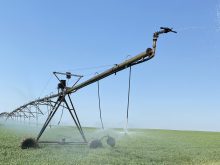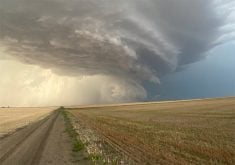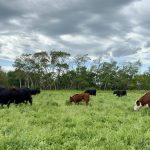Dairy processors are accusing the Conservative government of pandering to dairy farmers with a promise to set new rules for cheese ingredient requirements that could cost the economy up to $1.5 billion and cause trade headaches.
“The government is being very secretive about this and is rushing to prepare these regulations and announce them by June without any consultations and we are very concerned with what could result,” said Dairy Processors’ Association of Canada chair Nash Lakha, president of giant dairy company Parmalat Canada.
“No other country in the world has regulations and restrictions like these that add costs to consumers.”
Read Also

Saskatchewan RM declines feedlot application, cites bylaws
Already facing some community pushback, a proposed 2,000-head cattle feedlot south of Swift Current, Sask., has been rejected for a municipal permit, partly over zoning concerns about the minimum distance from a residence.
The processors won support from the anti-supply management restaurant and food services lobby, as well as sympathetic media commentary. Its argument is based on the assumption that the new rules for what will be allowed in cheese approved for sale in Canada will restrict current levels of milk protein concentrates in favour of more use of raw milk.
However, supporters of the cheese standards initiative have challenged the industry group’s analysis.
As well, federal agriculture minister Chuck Strahl rejected the accusation that processors have not been consulted.
“There has been lots of consultation all around. Our analysis is that it is not anything near that kind of dollars. People can put forward numbers and promote their cause and I think there is some of that going on all sides, frankly.”
Dairy Farmers of Canada communications official Thérese Beaulieu said the processors are wrong about the proposed rules.
“It is our understanding that it will freeze the compositional standards where they are so there will be no cost to anyone,” she said. “We are disappointed. They are creating an issue where there is none.”
Don Jarvis, president of the dairy processors, stood by the numbers and the warning.
“If anything, our numbers are very conservative,” he said. “It is the regulations that control our business which are being changed and we really don’t feel like we have been part of the discussion.”
He said it is clear from discussions with Canadian Food Inspection Agency officials that the new rules are designed to restrict the amount of milk substitute products allowed in cheese making.
Processors say the result will be higher costs for cheese makers, greater environmental costs as they are forced to get rid of millions of litres of whey now used in cheese, health problems as Canadians eat more butterfat, restrictions on imports of cheeses that do not conform to the new rules, trade challenges and a less competitive industry.
It estimates the economic cost in higher prices for cheese and ingredients and trade losses at between $1 billion and $1.5 billion annually.
Jarvis said it is the result of the Conservative government responding to dairy farmer demands for help. Since the industry lost a 2003 World Trade Organization case on the export of skim milk powder, it has been pressuring Ottawa to limit use of raw milk substitutes in cheese making.
“These are the politics of the government making nice with dairy farmers and it is hurting us and the whole industry, consumers and the economy,” said Jarvis.
Strahl said there will be time for public comment once regulations and the government economic analysis are published next month.
Tom Hauschild, of the inspection agency, said the plan is to publish proposed regulations by the end of June, offer a 75 day comment period and then develop the new rules.
“It is possible it could be done by the end of the year but we’ll first assess the comments and of course, there are many other departments involved,” he said.














